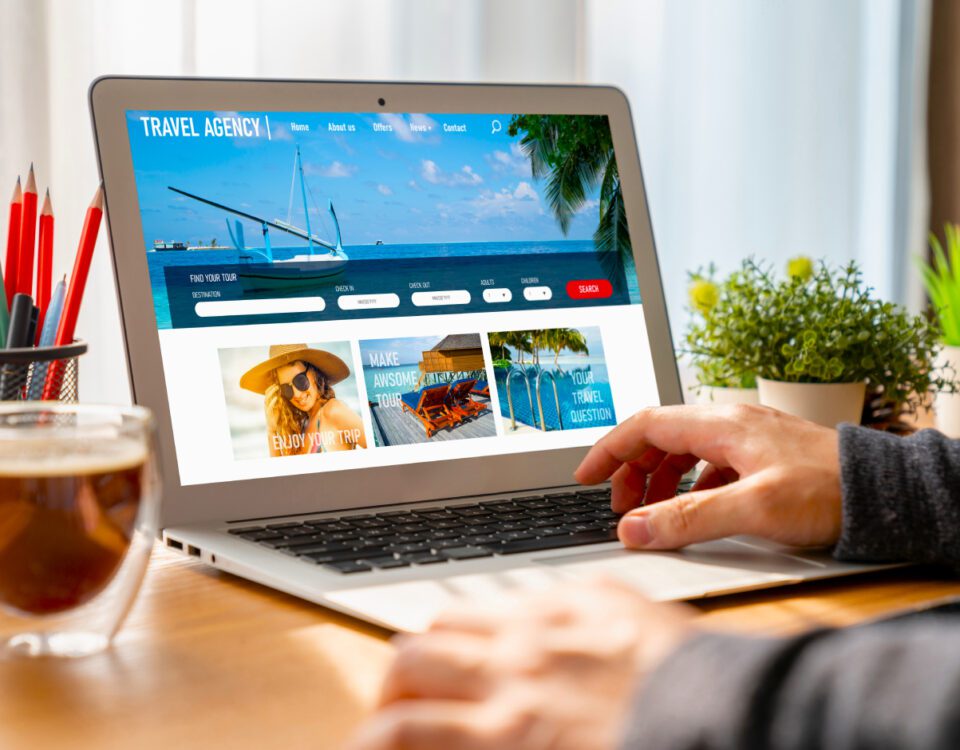Share
Usually when we hear the term brand advocates, we immediately think of external people such as social media influencers. But it’s important not to forget the main group of people who know your business inside out and can promote it effectively online: your employees! Your team members can amplify company messages and share unique insights, increasing brand awareness. They can also talk positively about their experiences and work life, offering a behind-the-scenes perspective, and expertly recommend your products and services to their friends and family - while also encouraging potential candidates to join your team.
Businesses with employee advocacy programmes tend to see higher levels of staff retention, as employees who play an active role in these programmes are far more likely to stay with that business. They’re also more likely to believe that their company is more competitive than others in the same industry.
Who Benefits from Employee Advocacy?
Both businesses and employees benefit from employee advocacy. For businesses, it’s an opportunity to boost brand awareness and increase engagement across all social channels - in fact, 79% of businesses report seeing more online visibility after implementing an employee advocacy programme. This also includes generating new leads, traffic, shares and even discovering new potential hires. Meanwhile, it allows employees to enhance and build on their personal career profiles, expand their networking opportunities, develop relationships with like-minded businesses and generally further their own career path within your organisation. Almost 86% of employees involved in some kind of advocacy program say that it has had a positive impact on their career.

Ways to Encourage Employee Advocacy
• Encourage social media activity
Content shared by employees receives 8x more engagement than content shared by brand channels, so where possible, you should encourage your team members to post their own brand-related content on their personal pages - especially on professional networking platforms like LinkedIn, where employees reportedly have about 10x more connections than the company they work for. Topics they could talk about include:
• Their experience interviewing with and joining your company
• Individual or team wins
• Achievements made by the business
• Your company culture, mission, and values
• A day in the life at their workplace
• Invite them to attend or speak at events and conferences
Keep an eye out for upcoming events within your industry and invite employees to come along and speak on behalf of your business, where they can share their expertise, build self confidence, expand their networks and spread the word about your brand.
• Invite them to be a guest on a podcast or webinar
Stay up to date with popular podcasts and webinar providers within your industry and monitor for any that are looking for guest speakers. Invite your employees to participate and talk about your company, again sharing their top tips and knowledge and raising brand awareness.
• Internal recognition/points system
To provide a fun incentive for advocacy, consider gamifying your strategy by allowing employees to earn points for their advocacy efforts, such as sharing content on social media, which can then be saved up and used towards tangible rewards. You could even set up a leaderboard in your workplace in order to add an element of competitiveness, and to enable employees to monitor the results of their ongoing advocacy efforts.
• Gift cards
Allow employees to earn gift cards for their favourite retailers or restaurants in exchange for talking positively about your company on social media.
• Give out company branded gear
Design and produce branded company products such as reusable water bottles, tote bags, t-shirts and hoodies that your employees can use and/or wear in public (especially at networking events) to increase brand awareness and get people talking.
• Use surveys to ask for employee feedback
An employee survey is a straightforward employee advocacy tool, providing the opportunity to discover why employees are or aren’t advocating for your brand. Just like your customer-facing NPS, which measures how likely your customers are to recommend your product or service to others on a scale of 0-10, your eNPS (Employee Net Promoter Score) measures how employees feel about your company.
Employee Advocacy Case Studies
• Reebok
When Ben Blakesley, Reebok’s former social media marketing leader, joined the company back in 2014, he wanted to shift its focus away from just professional athletes to all kinds of fitness enthusiasts. When he realised that Reebok’s own employees encapsulated the market they were trying to target - millennial fitness fans - he realised there was a huge opportunity for internal brand advocacy. He began asking staff to post brand-related content that could potentially be shared onto the official Reebok pages using the custom hashtag #FitAssCompany, as well as hosting regular employee takeovers on Instagram. Today, employees are still encouraged to share photos of themselves wearing Reebok products and taking part in various sporting events.
• Starbucks
Starbucks regularly features its employees on its social media pages, highlighting the people who make the company what it is. The brand offers a comprehensive set of guidelines for employees wishing to post on social media and encourages team members to be active online regarding their work lives. It also refers to its employees as ‘partners’, giving workers a sense of recognition and affirmation, which helps boost engagement levels.
View this post on Instagram
• Lush
Cosmetics brand Lush is famously loyal and committed to its set of brand values, which range from its dedication to ethically sourced products to diversity in the workplace. Not only does this influence its brand marketing, it also informs its choice of employees - the company typically employs people that align with its values and beliefs. This automatically increases the chances of employees championing the brand on social media, as they already have an affinity and shared purpose, and already care deeply about the topics Lush wants them to talk about.
Summary
The power of employee advocacy shouldn’t be underestimated. After all, your staff members are the mouthpiece of your company, and your customers are likely to trust them more than any celebrity endorser or influencer. They aren’t a marketing gimmick or paid promoters - they’re real, genuine people who want to help your business succeed, and with the right training, they’ll understand the benefits that come with a successful advocacy programme. Remember to keep your content fun, incentivise your employees to get involved, and give them the guidelines they need to create impactful messages that will show both potential customers and job candidates why your business is right for them. Find us on X @3sixfivepro to request some more top tips or to let us know how you’ve turned your own employees into brand advocates!










